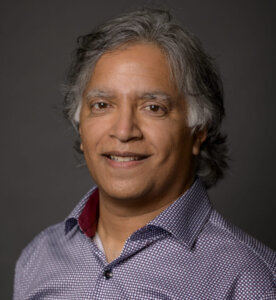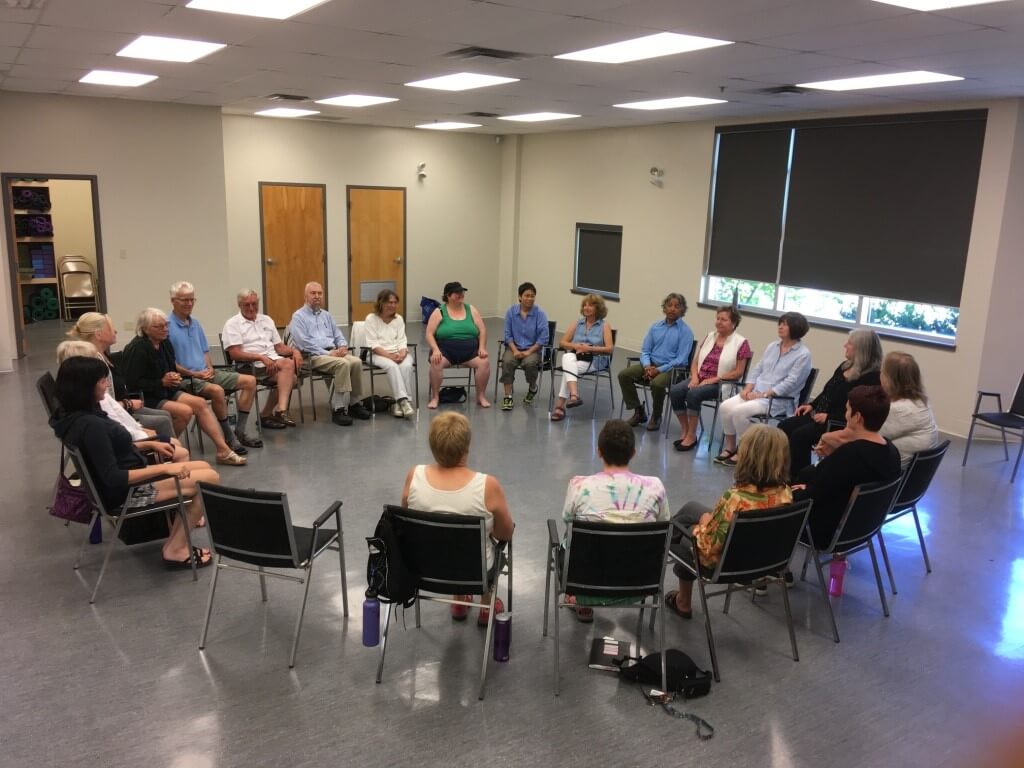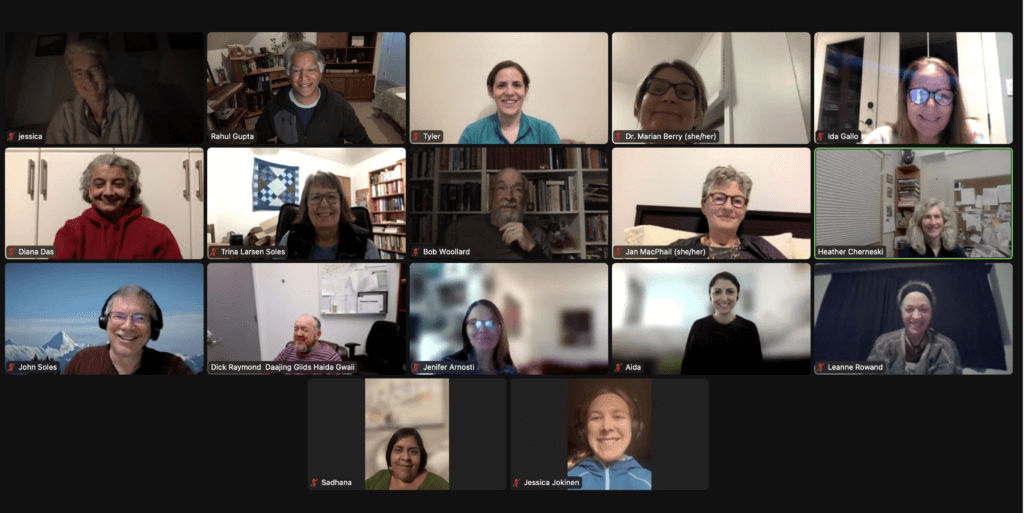
In the whirlwind of healthcare, how can providers access inner resources for their own healing? For Dr. Rahul Gupta, mindfulness has provided a countervailing force to the systemic headwinds of stress and chaos. Dr. Gupta’s own journey with mindfulness began long before his career in medicine took shape. “My mother used to tell stories of my grandmother, who began her day with a mindfulness practice, then spent the rest of the day in energetic service to others,” he recalls. This link to heritage sparked Rahul’s curiosity about mindfulness, eventually leading to integrate it into his medical practice and facilitate the Mindfulness-Based Stress Reduction (MBSR) course, part of RCCbc’s Mindfulness in Medicine program.

In 2004, Dr. Gupta participated in a 10-day silent meditation retreat that left him both challenged and profoundly changed. “The quiet and the practices were like a way to see my own operating system, and let it reboot,” Dr. Gupta reflects. “When I went back to work, it was easier to let go of old habits like perfectionism. That retreat helped me work directly with my own autonomic nervous system and access states of ease I didn’t know before.”
For nearly a decade, Dr. Gupta participated in 10-day silent retreats every six to twelve months. By integrating mindfulness into his daily routines and relationships, it wasn’t just about calming the mind—it began influencing how he showed up in relationships, in his connection to the natural world, and eventually, his medical career. “It wasn’t something I initially thought would intersect with my profession. And yet as my personal practice unfolded, I was seeing so many connections. Stress interferes with the body’s innate healing mechanisms for wellness. Mindfulness can help us renegotiate that. I was seeing how it could mobilize my own resources, wondering how it could help my patients.”
“The quiet and the practices were like a way to see my own operating system, and let it reboot….When I went back to work, it was easier to let go of old habits like perfectionism. That retreat helped me work directly with my own autonomic nervous system and access states of ease I didn’t know before.”
Bringing Mindfulness into Medical Practice
The connection between his personal mindfulness practice and his medical work was made in 2010, when his wife encouraged him to become a facilitator of Mindfulness-Based Stress Reduction (MBSR), a formalized program combining mindfulness and meditation for therapeutic purposes. “My wife had done an MBSR course herself in university and thought it would be a great fit for me. I was hesitant because I had some preconceived notions that a weekly practice spread over two months and involving a lot of other people, not in silence but in dialogue, would be less valuable.” Dr. Gupta ended up taking the three-year training to become an MBSR facilitator, and it fundamentally shifted his perspective on mindfulness, showing him the restorative power of a more flexible and communal approach to the practice.
The introduction of group medical visits under BC’s Medical Services Plan presented an opportunity to bring mindfulness into healthcare in a structured, accessible way. Dr. Gupta saw this as a chance to merge his experience in mindfulness with his commitment to patient care. “I was starting to connect some dots, sensing how trauma is often at the heart of chronic diseases through the dysregulation in our nervous systems that it causes. And because trauma disconnects us and disempowers us, a group practice that is all about regulating our systems could be very beneficial”. By 2014, he completed certification as a MBSR teacher through the Center for Mindfulness. A few years later, he became a Somatic Experiencing Practitioner (specialized training for support trauma healing). He began offering group medical visits focused on trauma-sensitive mindfulness, initially partnering with a fellow physician colleague to run multiple courses throughout the year.
“That opened my eyes because I quickly witnessed how patients would thrive when given choice around what type of mindfulness practice they explored and for how long. I also affirmed the social dimensions of mindfulness, and how critical it is to practice with peers, hear a variety of experiences, share our common humanity.”
Once this practice was implemented into his medical practice, the impact was tangible. “We ran surveys to measure the effects of the program on people’s medical symptoms and stress levels. It was rewarding to see both scores improve significantly,” Dr. Gupta shares. Over the last nine years, the program has expanded, with monthly drop-in sessions allowing participants to continue their mindfulness journey long after completing the initial course. Over 700 patients on the lower Sunshine Coast have completed the program.

“I quickly witnessed how patients would thrive when given choice around what type of mindfulness practice they explored and for how long. I also affirmed the social dimensions of mindfulness, and how critical it is to practice with peers, hear a variety of experiences, share our common humanity.”
Mindfulness for Providers Themselves
With mounting literature on the value of mindfulness practice for physicians, Rahul began a parallel journey of offering the MBSR course to interested colleagues, in communities, in hospitals, and online. Over the years, reasons for participating have varied; to recover from burnout, to foster more self-compassion & self-knowledge, to metabolize past traumatic experiences, to better regulate emotions (to name a few). “With practice, we might start to recognize earlier signs of exhaustion, like when we’re tightening physically or starting to numb out due to an overtaxed system. And then we find the courage to act on these new insights and set healthy boundaries that mitigate burnout.”
There is also a role for mindfulness in cultivating cultural humility in that healthcare professionals become more aware of hidden biases, while also perceiving themselves connected to a greater whole. It’s not uncommon for new ways of relating to one another to emerge, as participants access collective creativity. “Being human is both a privilege and hard. Opening ourselves to both the joys of being alive and the tremendous challenges of an ever-increasing complex world is not work that can or should be done alone. Together, we can bring a lightness and felt sense of support that sustains our efforts.”
To date, 220 providers have completed this training and a community of practice has formed, meeting monthly for dedicated practice time and inquiry into emergent themes.

Upcoming Opportunities for Providers
RCCbc’s Mindfulness in Medicine program is specifically designed for rural healthcare providers, including MDs, NPs, and midwives who live and/or practice in British Columbia. The next course will run Thursdays, January 23rd to March 13th, 2025, from 6:30–9:00 pm, with the full-day session on Saturday, March 1st, offered virtually via Zoom. The course is available free of charge, thanks to funding support from RCCbc.
Experienced practitioners with mindfulness can join a reflective, guided one-day workshop on June 6, 2025, at the BC Rural Health Conference in Prince George.
As mindfulness gains traction in medical education and professional development, Dr. Gupta is hopeful that more physicians will discover its benefits. “I’ve had colleagues tell me that this course changed their life. I believe it, because I know it changed mine. And the learning never seems to stop.”
To learn more about the Mindfulness in Medicine program and apply for the January 2025 cohort or the reflective one-day workshop, visit https://rccbc.ca/initiatives/mindfulness-in-medicine. For questions about the program, please contact Alison James at ajames@rccbc.ca.


